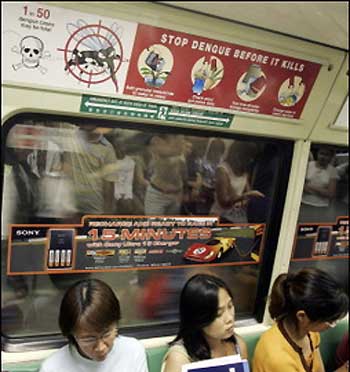Singapore finds itself in the severe grip of dengue. The dengue outbreak has plunged the country into its worst health crisis since the 2003 SARS epidemic, compelling officials to escalate a campaign against the spread of the mosquito-borne disease.
Public hospitals in the modern city-state are delaying non-urgent operations to cope with an outbreak that has resulted in eight deaths already and infected over 9,000 of Singapore’s 4.2 million people this year. The figure sounds astounding and it could surpass the record 9,459 cases and eight deaths from dengue last year.
Estimates are that over 100 new cases are now being reported daily, and since there is no effective vaccine against the virus, mosquito eradication is the only way of overpowering the disease.
Health minister Khaw Boon Wan said the spike is likely due to warmer weather during this period of the year. He has called the situation alarming and urged for a “SARS approach” to the dengue problem — a sort of no-compromise campaign to cut the disease transmission chain.
Warmer weather facilitates an increase in mosquito activity … and a higher rate of multiplication of the dengue virus in infected mosquitoes,
the minister said.
However, a government hotline will be set up to take note of the situation and diagnose possible “hotspots” of mosquito breeding.
It is to everyone’s surprise that a spick and span country like Singapore can be in the grip of a virus that breeds on uncontaminated water and unhealthy conditions. Citizens, expatriates and health experts are wondering how one of Asia’s richest and most sanitation-conscious countries could suffer an outbreak normally associated with miserably poor nations.
It is hard to understand because in the past, Singapore has had a very sophisticated dengue surveillance and prevention system. The rising number of cases and deaths indicates that something may have happened to that system whereby some breeding places have gone unnoticed and therefore uncontrolled,
said Dr Kevin Palmer, a dengue expert with the World Health Organization (WHO) regional office in Manila.
The disease, causes joint pain, high fever, nausea and a rash, is endemic to the region. In severe cases, it leads to internal bleeding and sometimes death.
Via:Yahoo




